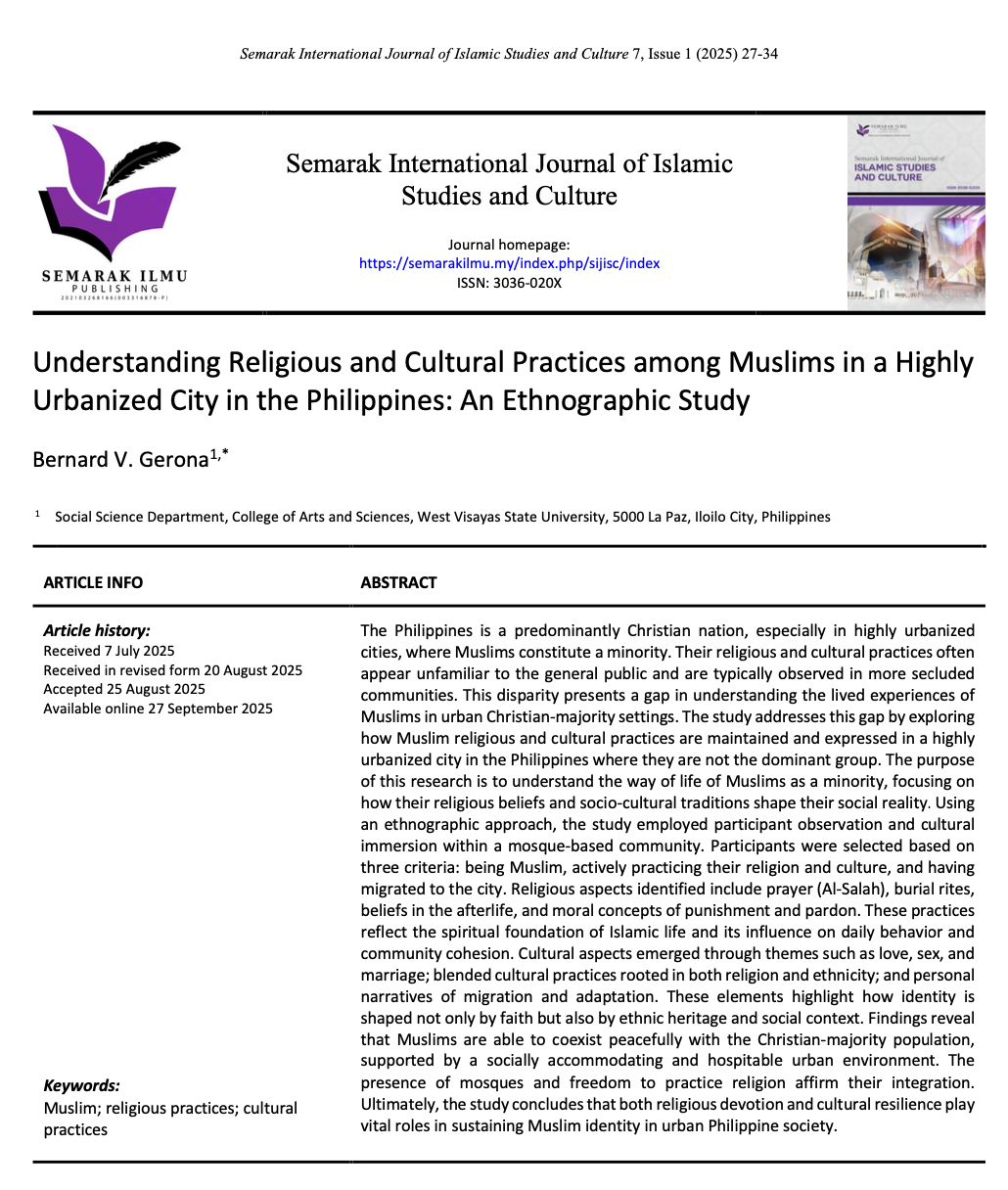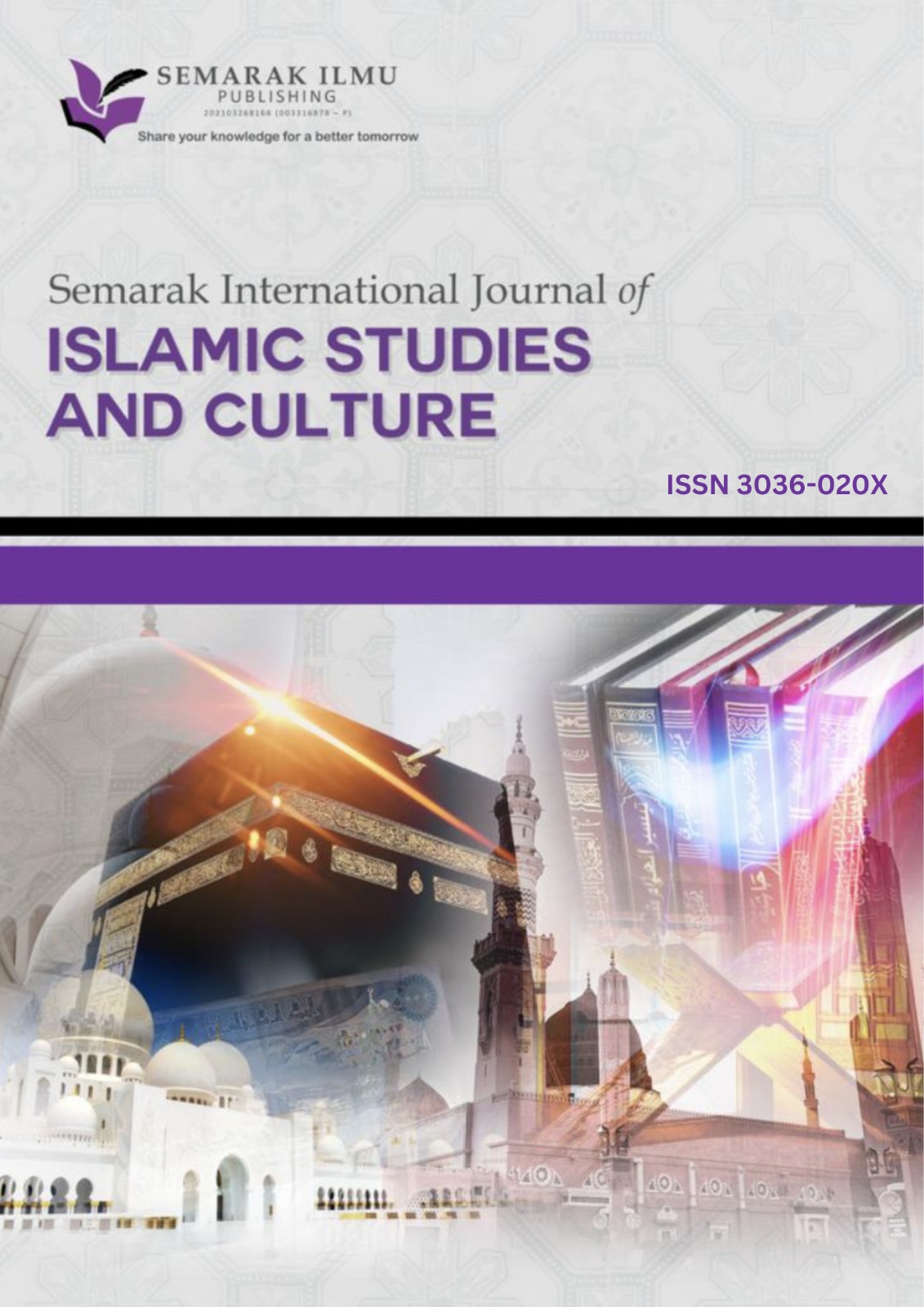Understanding Religious and Cultural Practices among Muslims in a Highly Urbanized City in the Philippines: An Ethnographic Study
Keywords:
Muslim, religious practices, cultural practicesAbstract
The Philippines is a predominantly Christian nation, especially in highly urbanized cities, where Muslims constitute a minority. Their religious and cultural practices often appear unfamiliar to the general public and are typically observed in more secluded communities. This disparity presents a gap in understanding the lived experiences of Muslims in urban Christian-majority settings. The study addresses this gap by exploring how Muslim religious and cultural practices are maintained and expressed in a highly urbanized city in the Philippines where they are not the dominant group. The purpose of this research is to understand the way of life of Muslims as a minority, focusing on how their religious beliefs and socio-cultural traditions shape their social reality. Using an ethnographic approach, the study employed participant observation and cultural immersion within a mosque-based community. Participants were selected based on three criteria: being Muslim, actively practicing their religion and culture, and having migrated to the city. Religious aspects identified include prayer (Al-Salah), burial rites, beliefs in the afterlife, and moral concepts of punishment and pardon. These practices reflect the spiritual foundation of Islamic life and its influence on daily behavior and community cohesion. Cultural aspects emerged through themes such as love, sex, and marriage; blended cultural practices rooted in both religion and ethnicity; and personal narratives of migration and adaptation. These elements highlight how identity is shaped not only by faith but also by ethnic heritage and social context. Findings reveal that Muslims are able to coexist peacefully with the Christian-majority population, supported by a socially accommodating and hospitable urban environment. The presence of mosques and freedom to practice religion affirm their integration. Ultimately, the study concludes that both religious devotion and cultural resilience play vital roles in sustaining Muslim identity in urban Philippine society.










